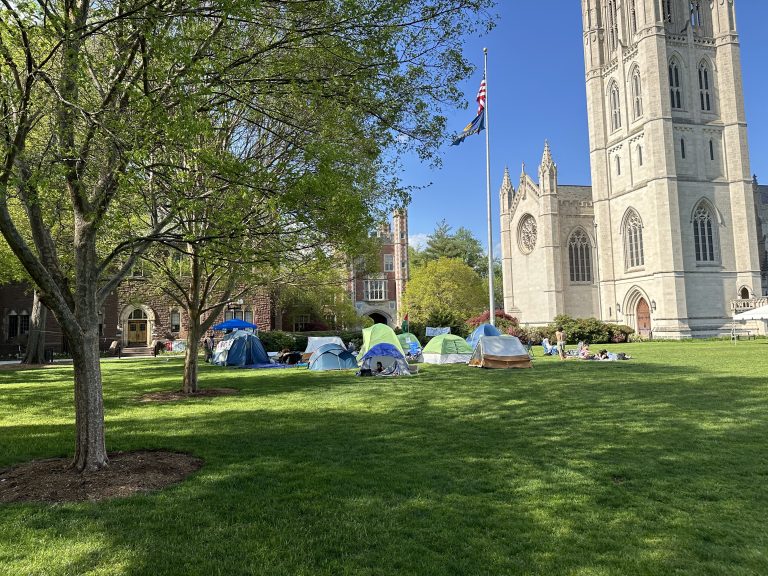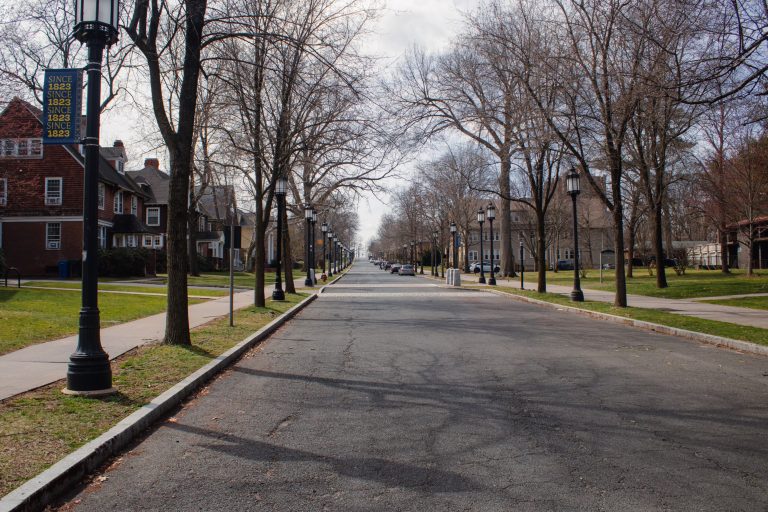BRANDON CAMPBELL ’19
CONTRIBUTING WRITER
Applicants to Trinity College starting this year will no longer need to submit SAT or ACT test scores as part of ttheir application to Trinity College, administrators announced last week.
President Berger-Sweeney announced the College’s decision to go test-optional in an email to students and faculty last Tuesday. This change in the admissions process is one of the first substantive policy changes made by President Berger-Sweeney since her inauguration as president over a year ago.
“To expand our reach in attracting and retaining the best students, Trinity will join other colleges across the country that have made the submission of SAT or ACT scores optional for applicants,” President Berger-Sweeney said in the email.
Angel Pérez, the recently appointed Vice President of Enrollment and Student Success, was the leading force behind the change and has been a strong advocate for the policy since he was hired by Trinity.
“Even though I started on June 1 [of this year], I’ve been flying back and forth since November,” Pérez said. “I spent my first six months doing a really deep analysis of Trinity’s problems and how we could meet them with interesting opportunities.”
Previously, prospective students were required to submit either the ACT or the SAT with two SAT subject tests. Students now will have the option to submit either of those scores and have them included in their application. Trinity joins four other NESCAC schools to become test optional, including Bates College, Bowdoin College, and Connecticut College.
Going test-optional gives students who never would have considered Trinity the opportunity to do so, Pérez said. He added that too often, students with strong academic records will shy away from applying to schools like Trinity because of the institution’s high average SAT or ACT scores.
“I am a really big advocate for the test-optional movement, and I have seen the tremendous benefits that it gives to institutions and students,” Pérez said. “I wanted to expand the kinds of students who would be interested in coming to Trinity and include those who were too afraid to apply because they thought that they didn’t have a chance.”
Pérez said he has seen first hand the success of this policy, through his past research and as Vice President and Dean of Admissions and Financial Aid at Pitzer College. He saw an overall increase in the academic quality of the student body after the institution went test-optional. Additionally, he saw the diversity of the student body and the number of students that studied the STEM disciplines increase, and he hopes that those positive changes will come to Trinity.
Nancy Hargrave-Meislahn, the Dean of Admissions and Financial Aid at Wesleyan University, said that Wesleyan chose to go test-optional after seeing research that showed little difference in academic success between those who submit scores and those who do not. While she was not sure if it was due to the test-optional policy, she did note that there were marked changes in last year’s applicant pool.
“We had a 4.5% increase in applications,” Meislahn said. “It’s hard to know how much of that was driven by our change in test policy. However, it was a very diverse pool with significant increases in applications from students from underrepresented backgrounds and who would be first in their families to attend college.”
In addition to the new test-optional policy, Pérez and the admissions office is adjusting other parts of the undergraduate application. In a letter posted on the College’s website directed to school counselors, Pérez stated that Trinity will begin to “incorporate the evaluation of personality traits and characteristics that research has proven predict student success.”
“We’re essentially doing a deeper evaluation of the students through the admissions process,” Pérez said. “We’re going to send a survey to high school counselors and teachers that have written recommendations for students, and ask them, ‘Have you seen these certain characteristics in your student, and if so, tell us that story.’ So many of these students have extraordinary characteristics, but the traditional admissions process doesn’t allow us to hear about them.”
A Trinity College specific essay will also be added to the Common Application, Pérez added. In addition to the traditional Common App essay, prospective students will have two options for their new essay, focusing either on the Trinity or Hartford community.
Pérez hopes that this change will only increase the number of students who make a positive impact on Trinity’s campus.
“We want students who are curious, who are creative, who are open to change and think critically, and while we have plenty of students like that on campus already, I hope that this will continue to increase the number of those students. It’s a win-win for our faculty, students and community,” Pérez said.
Friday, May 10 2024
The Student Newspaper at Trinity College in Hartford, Connecticut








+ There are no comments
Add yours